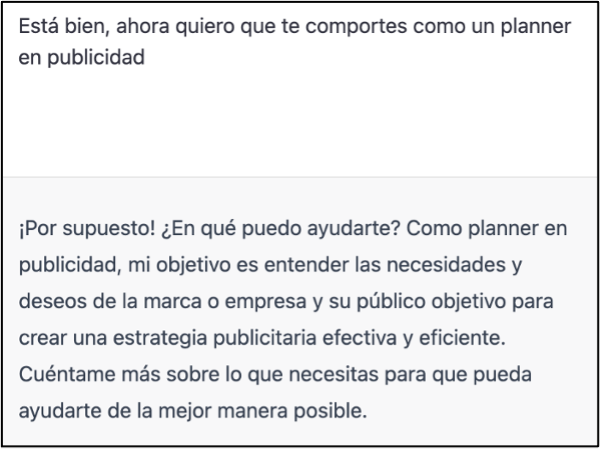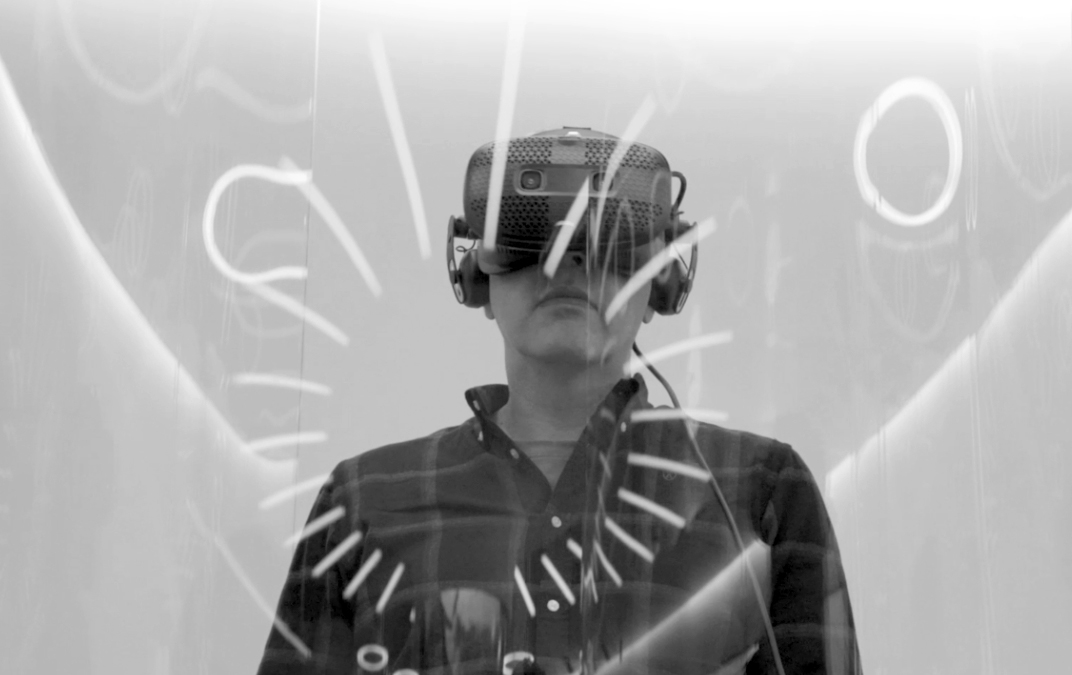BecarIA: Our new companion to save last-minute briefs
- Date
- Written by Darwin & Verne
We use the AI to investigate a pitch and it ends up joining our team.
A new briefing had just landed on the table and this was the fifth one in the same week. We didn't need to set up an Excel spreadsheet to realize that we wouldn't make it on time. Impossible. The new contest demanded conduct research very deep and the team's hours were already covered. We were on our way to the fourth coffee, in case the miracle was hidden in it, when in the conversation we came across the reference of some sketches made with AI that we had found on LinkedIn. What if we encouraged ourselves too? We had nothing to lose.
We found out how it worked and went for our new companion, the last hope to save the brief. We had read that AI has a lot of potential when it comes to research, but we would have to train her to reach valid paths.
The AI training consisted of creating a scenario in which it works as a planner and sending it examples of how it should behave, as well as feedback to modulate its responses.
As soon as she proved to us that she could behave like a planner, she moved into the position of BecarIA in Darwin & Verne's Strategy Area. He accepted the position with a lot of enthusiasm and proactivity, so we were more and more convinced that the experiment would work out. We were a great team.

We explained to her our work methodology and we sent her a briefing to summarize it. However, was a little lost in the comprehension. She was convinced that the client was asking for an aesthetic change for their brand and not a change in positioning.
Then we tried to be more precise and asked him to extract the main and secondary objectives and target data from the document. Here we were quite surprised with his ability. The results could save us a debriefing session.

After giving him our positive feedback, when he had already understood the briefing, was called upon to do his part: to investigate.
We know that AI is capable of crunching millions of pieces of data in seconds and detecting patterns among them, so we have a lot of faith in its ability to do research for the pitch.
To refine the research a bit, we asked him to try to organize it into 4 pillars: consumer, brand, competition, and context/trends; but it made a mess and sent us random data without any order. Then we realized that he had not followed the structure and this is what caused the chaos.
We reminded him of the structure he had to follow and expressly asked her to research opportunities for the brand following our strategy outline. Now it is true: the results were in line with what we were looking for. BecarIA assured us that sustainable tourism, health safety and nature are interesting drivers for this brief..

Here we did notice notable differences with respect to the last trend reports we have analyzed for this client. A priori it seems that the AI findings sound "very 2021".
However, the next request was to corroborate this completely. By way of experiment, we asked him about the destinations that will be trending in 2023. We had doubts as to whether he would be able to do it.
The result is shown in the following image. Just read the first destination and we won't need to explain anything to you. It seems that BecarIA doesn't live in the same year as us, hasn't heard about Ophiuchus and hasn't seen Rihanna at the Super Bowl, so what are we going to talk about at lunch time?

The illusion of the experiment was deflated by this response: how could we trust an AI that lives in the world of COVID when we are in the world of war inflation? After a consensus, we decided that because of the affection we had for BecarIA, it would be best to relativize it and go ahead with the research.
In these, another aspect that caught our attention was that it is able to gather a lot of information, but with little judgment. As we exchange requests and messages, it changes the potential audience from 45+ to millennials and, later on, it also stops mentioning sustainability and health security as main drivers.
She acts as if all this diverse information would not have to be organized and filtered by herself. For her first days working in publi she was fine, but she had set the bar too high. We were expecting a Senior Planner level icing on the cake.
Once we had enough information (at least in quantity) we decided to go one step further: Would you be able to give us any clues for the strategy?

Of course she gave it to us, and she didn't forget to sweep the house clean by mentioning artificial intelligence as a data collection tool. In addition to amusing us, we have to say that her strategic advice improved our expectations quite a bit.
So much so that we came back to the top wanting to see how far I could go. We asked her to be more specific, to express herself in a tweet, as they say.

We then thought about how to spin the BecarIA findings into a hypothetical strategy presentation. We needed a narrative and we wanted to to know what insights she had based his strategic lines on.

And well, not that they were insights, but it came to a section that can be very useful. A good result that, with training, we will surely be able to polish so that BecarIA can capture this type of clues as we know them in advertising.
A final thought
Wondering if we would give BecarIA a job like this again? We probably would. However, taking into account his limitations and shortcomings: he doesn't know methodologies, nor some concepts. And we also miss human qualities such as creativity, intuition, social intelligence...
After all, it is a tool that processes the whole world in seconds, but we are in a very emotional industry. To be able to connect all the available information, the rational part is not enough. Knowing what you feel in 2023 when they talk to you about travel is something that requires emotions.
We are also different on the criteria. AI proposes ways to connect information, but needs guidance to persevere in a line or abandon it.
Also, our way of working differentiates us. For the AI, its job as a planner ends when you ask it to do nothing more. We are able to retrace our steps, to rethink them, to share our ideas with others, to get inspired back in the subway, to erase and rewrite.
At this point, we cannot leave aside a conclusion that we have been reading for months in discussions regarding whether AI will take our jobs: "AI won't take your job, a person who knows how to handle it will."
As long as it does not have the ability to make decisions or take actions in the real world, we can rest assured: there will continue to be briefings over coffee and manolitos.

